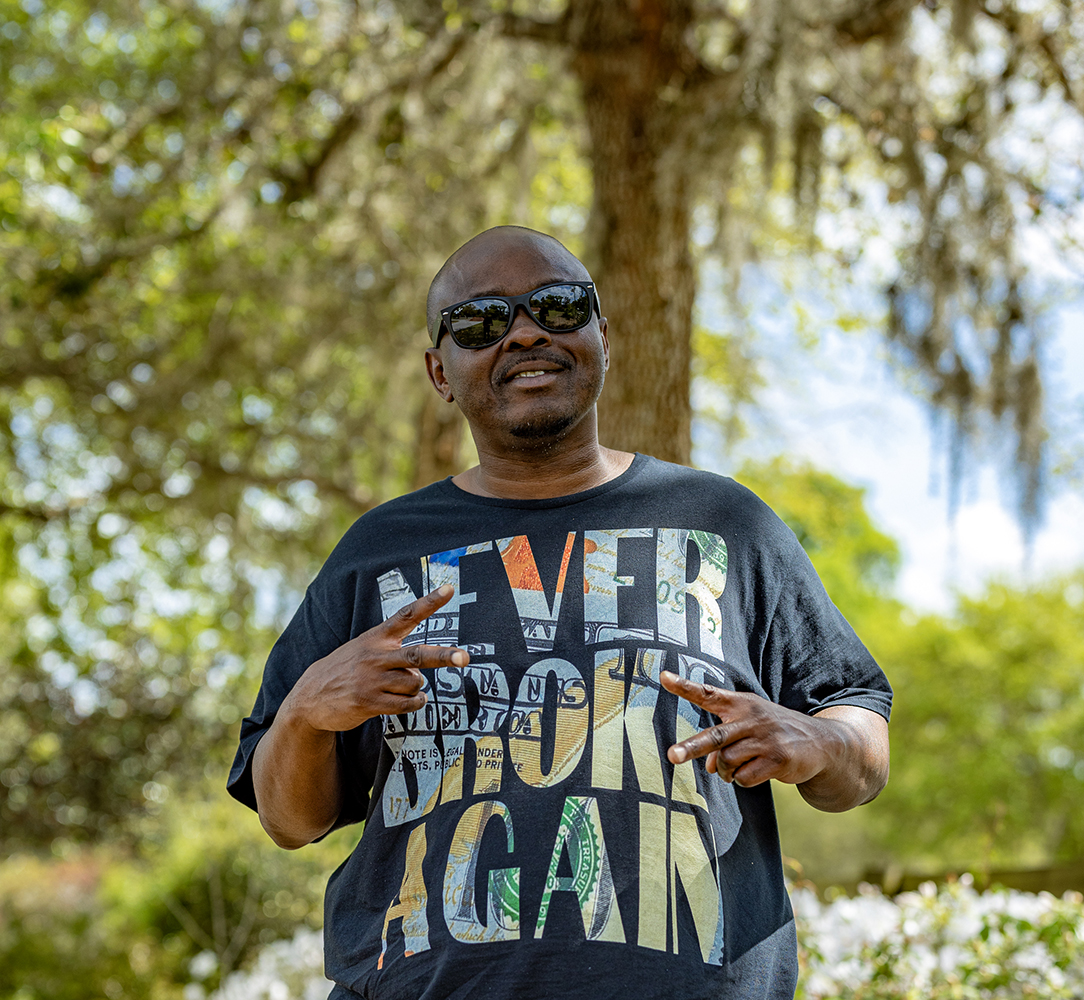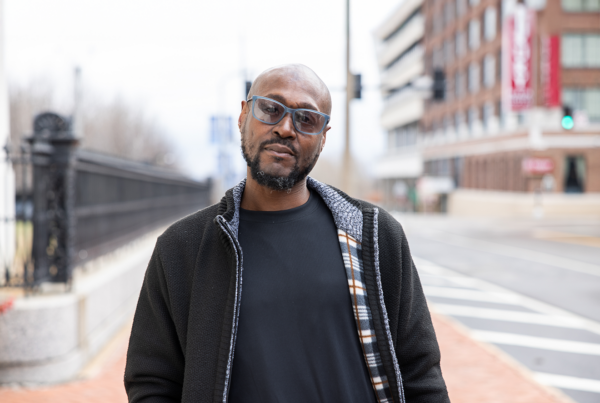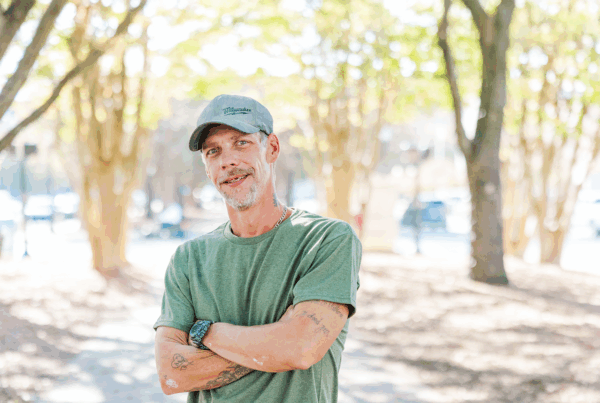Charles found himself on the receiving end of one of the most punitive periods in U.S. legal history: the War on Drugs. What began in part as an attempt by then-President Richard Nixon to get reelected, ended up accelerating during the crack-cocaine epidemic of the 1980s that affected millions. During this time, federal and state lawmakers across the country defaulted to punishment, creating and passing laws with draconian penalties for drug possession and sales.
This new system, which came into existence when Charles, now 40, was barely starting kindergarten, threw the American criminal justice system dramatically out of balance. Communities, consisting mostly of people of color, were subject to heightened police presence and surveillance, resulting in large-scale arrests and decades-long imprisonment of young men. As this system expanded, the nation’s jails and prisons became disproportionately filled with Black men, signaling the beginning of a new era that would come to be known as “mass incarceration.”
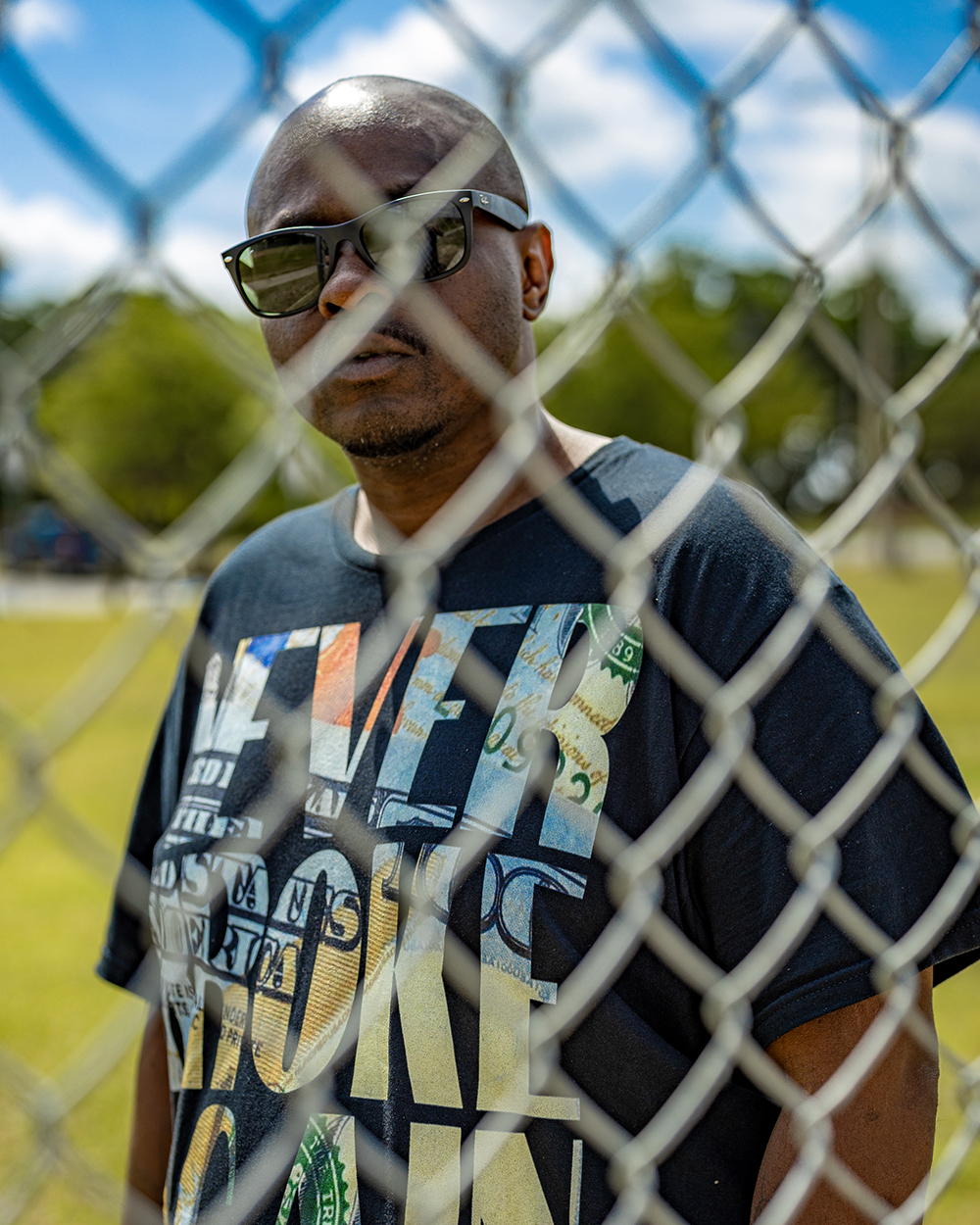 Charles’s lifelong dream has been to have a career in finance. For most of his life, however, his goal felt far from reach and hardly worth fantasizing about. The Florida-native was born in the early 1980s in Clewiston, a poor neighborhood about 80 miles northwest of Fort Lauderdale. As an infant, the state legally separated him from his mother because she was struggling with addiction and unable to care for him.
Charles’s lifelong dream has been to have a career in finance. For most of his life, however, his goal felt far from reach and hardly worth fantasizing about. The Florida-native was born in the early 1980s in Clewiston, a poor neighborhood about 80 miles northwest of Fort Lauderdale. As an infant, the state legally separated him from his mother because she was struggling with addiction and unable to care for him.
Charles was raised instead by his grandparents. Theirs was a loving home in a working-class, predominantly Black neighborhood that experienced high rates of unemployment, housing instability, poor health and educational outcomes, over-policing, and crime. As is true across the country, these sorts of neighborhood challenges are often correlated with a history of discriminatory government policies, like “redlining,” which starved the community of resources, and inevitably led to insufficient government-funding for affordable and accessible community-based programs and services. For Charles, extracurricular activities, such as sports and other after-school programs, were virtually non-existent.
Charles saw many older boys getting sent to prison for dealing or using drugs. It was only a matter of time before he experimented with drugs himself. As a young teenager, he also thought about selling. Like many others, he figured it was his best way out of poverty. “I knew my mom was a victim of crack, but I also didn’t want to see my family struggling,” he said. “I wanted to get money.”
By the late 1990s, Charles said he had been caught using drugs several times. Because he was a teenager, authorities sent him to juvenile detention. Not once did anyone – a judge, prosecutor, or defense attorney – offer him treatment for his behavioral health problems as an alternative to incarceration. The lack of therapeutic services in custody and the punitive environment did nothing to help him cope or better understand the illness he was struggling with.
“I didn’t know how to deal with the pain. I had a lot of anger issues.”
Then in 2002, shortly after his 18th birthday, Charles’ mom died unexpectedly of complications related to diabetes. Overwhelmed with grief and stress, he dropped out of high school. Left with hours of unstructured time previously filled with schoolwork, Charles fell deeper into his addiction. To support his habit, he started selling. Six months later, the police arrested him for carrying and trying to sell crack cocaine. “I didn’t know how to deal with the pain,” Charles said. “I had a lot of anger issues. I became rebellious.”
Although he was only 18-years-old, prosecutors charged Charles as an adult. He was sentenced to eight years in prison. Charles’s stiff prison term was a direct result of the harsher new laws stemming from the War on Drugs, which included heightened penalties for crack cocaine possession, and with no comparable increases in severity for powder cocaine possession (which was more popular amongst wealthier, white people). The impact fell disproportionately against people of color. Five grams of crack, for instance, resulted in the same mandatory minimum sentence as 500 grams of powder cocaine. Courts became flooded with low-level and non-violent drug cases and Black people were disproportionately arrested, convicted, and sentenced to long prison terms.
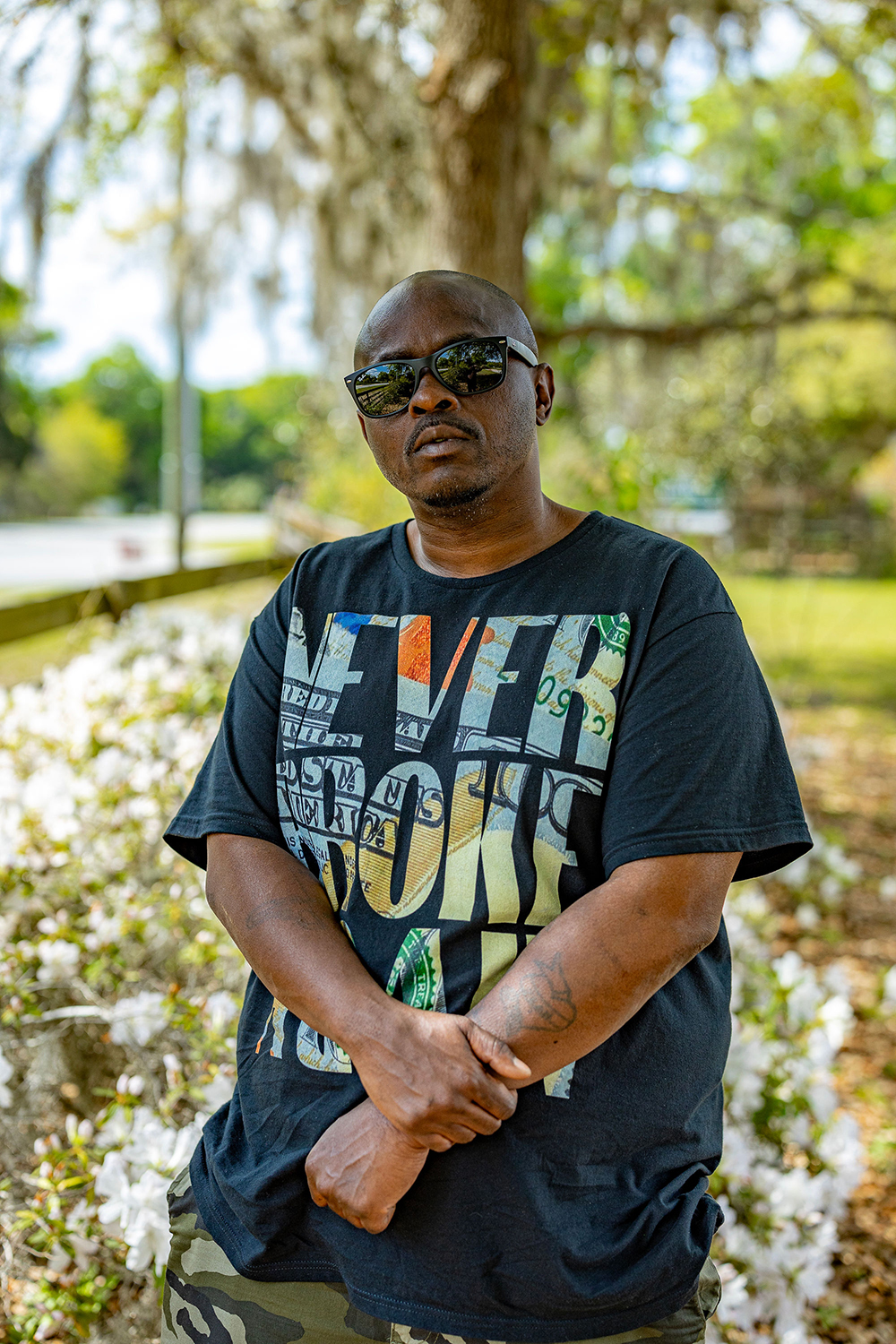 As this new, more punitive legal paradigm emerged, it expanded to also include civil penalties. This meant people convicted of drug crimes were no longer able to gain employment in certain industries, faced restrictions in accessing affordable public housing, and were banned from receiving many federal benefits, such as student loans and food stamps. Experts estimate that the Black incarceration rate in America exploded then, tripling from about 600 per 100,000 people in 1970 to 1,808 per 100,000 in 2000.
As this new, more punitive legal paradigm emerged, it expanded to also include civil penalties. This meant people convicted of drug crimes were no longer able to gain employment in certain industries, faced restrictions in accessing affordable public housing, and were banned from receiving many federal benefits, such as student loans and food stamps. Experts estimate that the Black incarceration rate in America exploded then, tripling from about 600 per 100,000 people in 1970 to 1,808 per 100,000 in 2000.
These newly added civil penalties, often referred to as “collateral consequences,” greatly impacted Charles’s future prospects. In 2010, when he was 26 years old, Charles was released from prison after having served eight years behind bars. Ready to start anew, he moved to Orlando to reunite with his brother and to be closer to family. However, his previous criminal history made it difficult for him to find employment and affordable housing. He soon became homeless. With no money, government support, or access to programs that might help him treat the addiction that was at the root of his justice-system involvement, he fell back to a familiar place of comfort and coping: he began using drugs again. For the next decade or so, Charles’s life was marked by this drug habit. For some people struggling with addiction, like Charles, that road detours repeatedly in jails and prisons. “Things went downhill,” Charles said.
In July 2023, two decades after he had first encountered the criminal justice system and been incarcerated, Charles was arrested again on drug-related charges. Although he was still legally innocent and his case was ongoing, he remained in custody for a full month because he was unable to afford the $1,250 bail amount the judge assigned to him as a condition for his release. This time around, however, Charles finally received a bit of rare support that so many financially strapped people struggling with addiction do not have: free bail assistance and access to supportive services from The Bail Project.
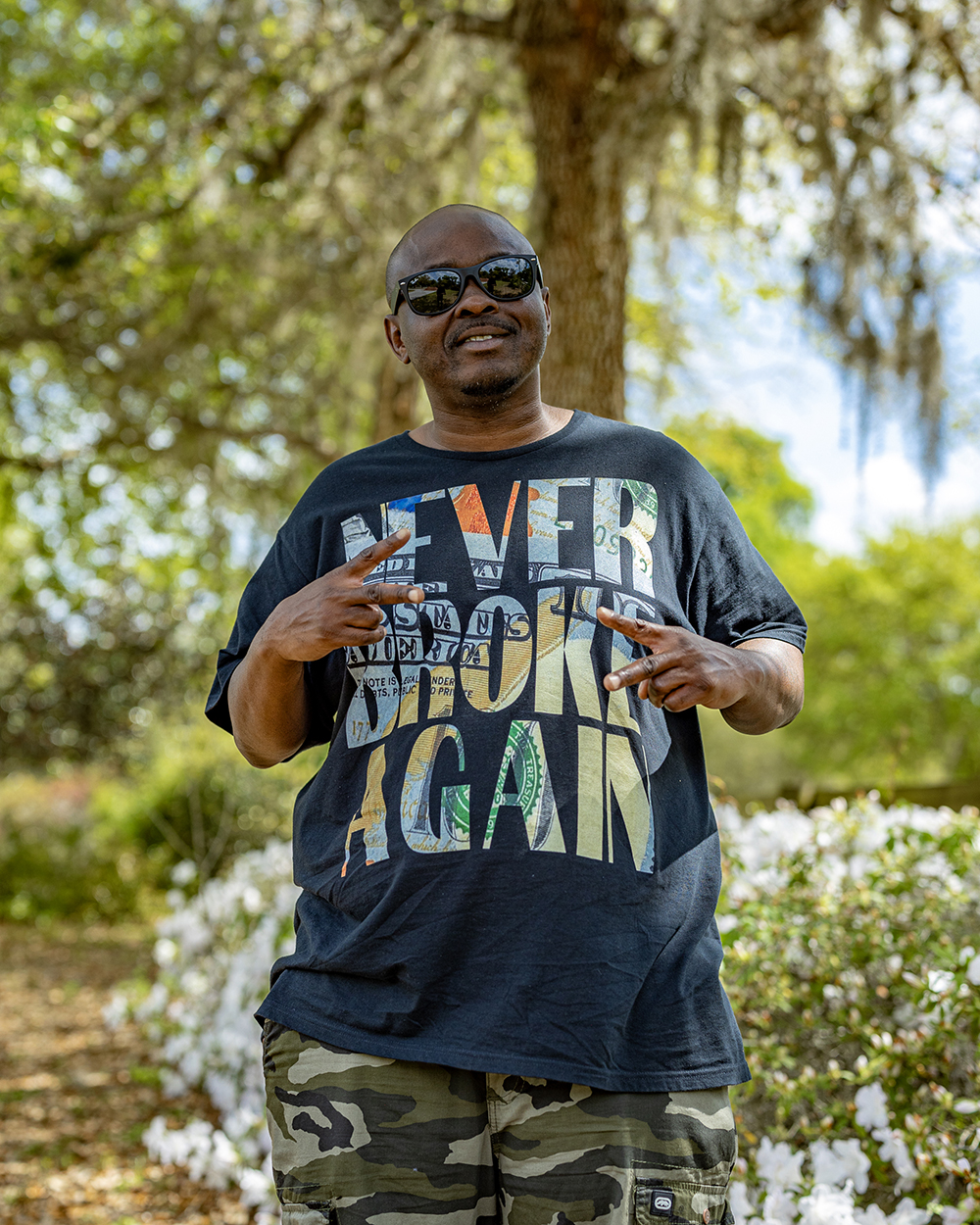 After Charles’s lawyer contacted The Bail Project, a member of our Orlando team paid his bail and connected him to drug treatment programs so he could receive medical attention, temporary housing, and the support he needed to challenge his addiction. The Orlando team also provided him with a phone, court notifications, and free transportation to and from court. To Charles, the support he received went a long way to help put his addiction behind him. Reflecting on his newfound sobriety, Charles said, “I have a sponsor to help me and close friends.”
After Charles’s lawyer contacted The Bail Project, a member of our Orlando team paid his bail and connected him to drug treatment programs so he could receive medical attention, temporary housing, and the support he needed to challenge his addiction. The Orlando team also provided him with a phone, court notifications, and free transportation to and from court. To Charles, the support he received went a long way to help put his addiction behind him. Reflecting on his newfound sobriety, Charles said, “I have a sponsor to help me and close friends.”
“I’m aiming for that degree in finance. I want to be financially stable and help people less fortunate.”
Over the years, Charles experienced his fair share of tragedies that were, in part, thrown into motion as the result of discriminatory laws and social policies. However, his resilience and strength helped him overcome these obstacles. Now he is closer than ever at fulfilling his ambitions – and his life experiences have only strengthened his resolve. “On my horizon, I’m aiming for that degree in finance,” he said. “I want to be financially stable and help people less fortunate.”
Thank you for reading. The Bail Project is a 501(c)(3) nonprofit organization that is only able to provide direct services and sustain systems change work through donations from people like you. If you found value in this article, please consider supporting our work today.







